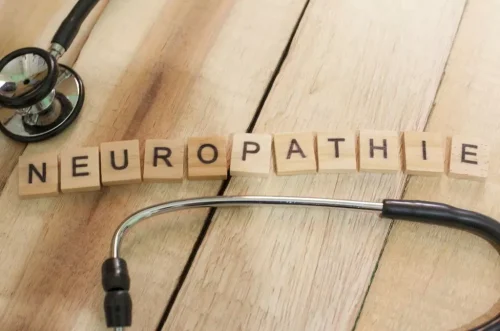
No matter how close the friendship or familial bond, some relationships can seriously damage your attempts at staying sober. Even though it can be difficult, removing yourself from toxic or triggering relationships is essential to maintaining long-term recovery. Living a sober lifestyle also means taking control of one’s life and making positive choices. Sobriety should be celebrated as a courageous and empowering choice rather than something to be ashamed of. By choosing to pursue a challenging transitional phase of recovery at a sober living home, you may minimize the likelihood of relapse derailing your recovery before it gets traction.

A Rockstar’s Guide to Sobriety: Sarah Smith’s Music and Life
These therapies help individuals address the underlying causes of addiction, develop coping mechanisms, and learn relapse prevention strategies. Living a sober lifestyle does not mean that one cannot have fun or enjoy social activities. In fact, sobriety can open up new opportunities for enjoyment and fulfillment. It allows changes sober living individuals to fully engage in activities without the haze of alcohol or drugs. Sobriety can lead to deeper connections with others, as individuals are able to be present and fully participate in social interactions.
You’ll Improve Relationships
Lasting recovery requires lasting effort, but relapse is not failure or weakness; it takes more than willpower to maintain sobriety. This article discusses the meaning of sobriety and arms you with information and strategies to smooth—and stay on—your path to wellness. CBT is an evidence-based therapy that is highly effective in addiction recovery. This form of therapy teaches clients how to identify and challenge harmful thought patterns and replace them with healthier ways of thinking.

Embracing a Sober Lifestyle: How Sober Living Can Change Your Life
Educational and job training programs may become more integrated into recovery housing, addressing the socioeconomic factors that often accompany substance use disorders. Such initiatives would not only aid in reintegration into society but also offer a purposeful and fulfilling path forward. Embarking on the sobriety journey is a transformative experience involving more than quitting substance abuse. It requires a commitment to creating a new lifestyle that promotes health, wellness, and personal growth. Living sober has numerous benefits, including improved physical and mental health, stronger relationships, increased productivity, and financial stability. It’s about developing healthy coping mechanisms and learning how to deal with life’s challenges without turning to substances.
Embarking on the journey of leading a sober life is a profound and courageous step. This may involve exercise, practicing relaxation techniques, getting enough sleep, or engaging in hobbies that bring joy and fulfillment. Triggers are events, situations, or emotions that can lead to cravings and relapse. It is important to identify common triggers and develop strategies for coping with them. Sobriety allows individuals to be more present and engaged in their relationships.
Long-term recovery strategies and community impact
Building a new, healthy routine to replace the old one that encouraged or involved drug or alcohol use is an essential part of any post-rehab lifestyle. Finding activities that don’t include substance misuse and which enhance your health and mental well-being is a key step toward maintaining sober living. Sober housing facilities are intentionally structured to provide a supportive environment that is conducive to addiction recovery. Feelings of isolation and loneliness may also pose a risk to your sobriety or trigger a relapse. However, living in a community amongst those who can relate to your experience can provide a gentle, judgment-free reminder that you are not alone on your journey and help you stay the course of your recovery.
- Predictions for 2024 and beyond hint at an era where personalization of treatment, emphasis on whole-person wellness, and integration of technology become foundational pillars.
- The cons of sober living include time commitment, cost, availability, privacy, and a lack of government oversight.
- If you’re struggling with addiction, seeking professional help can be a crucial step toward living a sober life.
- Sober living in California has become an increasingly popular option for individuals in recovery from addiction.
- You may find life is more enjoyable and manageable without the substances you once depended on.
- Feelings of isolation and loneliness may also pose a risk to your sobriety or trigger a relapse.
We will likely witness a greater adoption of eco-friendly sober homes, which underscore our societal shift towards sustainability and wellness-oriented practices. Additionally, as the societal perception of addiction treatment evolves, we can expect a broadening public acceptance, leading to more robust support networks and funding opportunities for these essential services. Alumni programs provide a platform for former residents to share their experiences, successes, and challenges, creating a community of mutual support.

- Not everyone who goes through drug or alcohol detox and rehab will need this step, but sober living can help reinforce what you’ve learned in rehab.
- It’s crucial to communicate with employers and coworkers about your sobriety and any accommodations that may be necessary.
- The Reframe app equips you with the knowledge and skills you need to not only survive drinking less, but to thrive while you navigate the journey.
- Milestones can include various achievements, such as completing a certain number of days or months of sobriety, reaching personal goals, or overcoming specific challenges.
- Finding purpose and discovering new passions in sober living can bring joy and fulfillment.
- Ready to determine whether sober living could be a beneficial next step in your alcohol journey?
In these homes, everything, from energy-efficient appliances to sustainable building materials, contributes to a greener living space that promotes well-being. In an era where digital connectivity has become a backbone for social interactions, virtual support groups have emerged as a cornerstone for sober living resources. Particularly noteworthy as we head into 2024, these online platforms are breaking geographical barriers, bringing together individuals in recovery from all corners of the world. By joining virtual communities like those facilitated by RECO Institute, members find solace and strength in shared experiences, without the constraints of physical presence.

These “12-Step residences” were especially helpful for those whose drinking resulted in eviction or estrangement. Jeremy’s dedication to creating a safe environment for all, regardless of race, creed, or any other defining characteristic, at Change Place stems from a profound belief in the power of acceptance and inclusion. He recognizes that everyone’s journey is unique and strives to foster a community where individuals from all walks of life feel valued, respected, and supported.

Add Your Comment